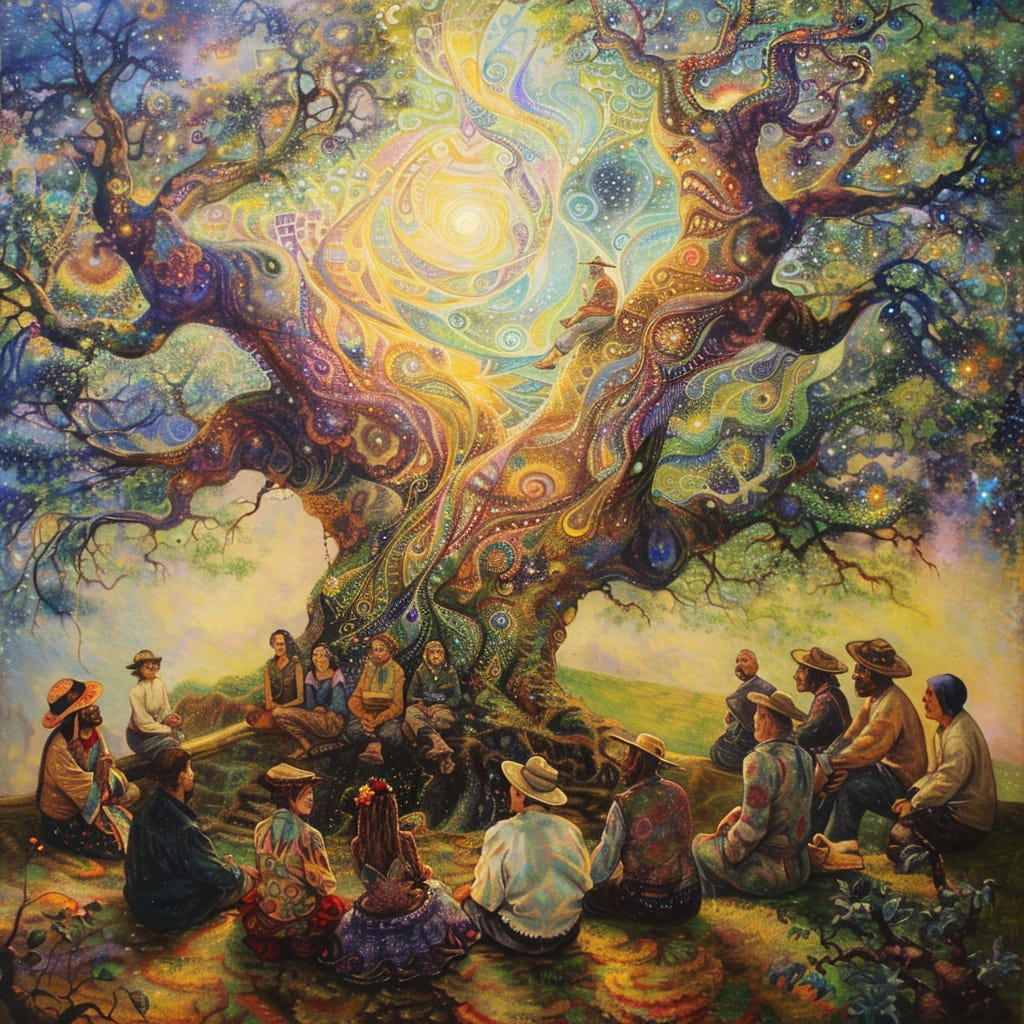Repurpose or Begin Again 🌀
The meeting that lasted 11 years, 321 days 16 hours and 53 minutes.
On the verdant and technologically advanced planet Berul, nestled in a distant galaxy, the dawn of a pivotal era was upon its inhabitants. The Beruls, a species celebrated for their harmonious integration of nature and technology, faced a transformative challenge. Their societal structure, once heavily reliant on manual and intellectual labor, had evolved. Robots and artificial intelligence, designed in symbiosis with Berul's vibrant ecosystems, now performed all forms of traditional work. This left the Beruls in a unique conundrum, with infinite time and resources at their disposal, yet grappling with the existential question of purpose in a world where work as they knew it was obsolete.
In Lumina, the luminous capital city beneath the gentle gaze of symbolic beam, Zara, a polymath, reflected on this new reality. The essence of Berulian life was at a crossroads, prompting a profound inquiry into their collective future. It was a question of identity and purpose: should the Beruls repurpose their lives towards pursuits of enrichment, or was it time to reinvent their society from the ground up?
This query culminated in the assembly of the Council of Repurpose, a diverse group of Beruls from various walks of life, gathered under the ancient and wise Great Harmony Tree. The council debated the path forward, envisioning a society that prioritized creativity, personal growth, and community over the economic necessities that once dictated the rhythm of their lives.
In meeting that lasted some 11 years, 321 days 16 hours and 53 minutes, Flick Finger’s casual words changed everything, he said “when we’re too sure, we suffer.”
In the heart of their discussions, the Beruls created something beautiful—the Universal Harmony Initiative. It was a simple promise that made sure everyone had enough to live on, thanks to the wealth created by their helpful robots. This promise was the key to unlocking a world where no one was left behind, and everyone could chase their dreams and grow together.
With this new promise in hand, the people of Berul found themselves free from the old ways of working just to survive. They were now on a journey of discovery and joy. Zara, who loved digging through the past, spent her days uncovering the colorful stories of their ancestors. Jiro, who once engineered the future, now crafted music that seemed to come from the stars themselves. And the artists of Lumina turned their city into a masterpiece, painting its walls with the story of their society's journey to this bright new day.
As this new way of living blossomed, the story of Berul echoed across the stars, showing the universe what's possible when a society moves past just getting by and reaches for a life filled with meaning and connection. At the center of it all was the Great Harmony Tree, a living monument to their choice to transform, not start over. This tree shared their story with anyone who would listen, a tale of a society that chose to redefine what it means to truly live.
Who’s rich, who’s not now? Is still for us and Zara to figure out.
With love from Lumina,
From the Ko-creators of Planet Berul.


